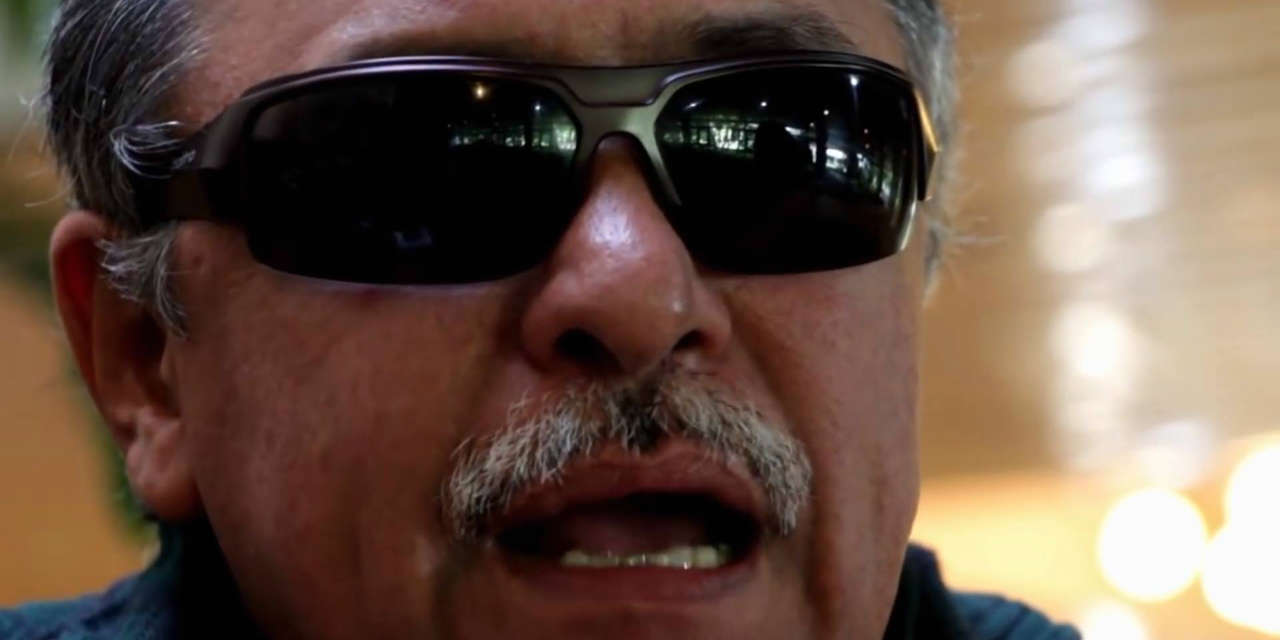The controversial release of FARC leader “Jesus Santrich” by Colombia’s war crimes tribunal on Wednesday does not mean the end of legal troubles for the former guerrilla ideologue.
The Special Jurisdiction for Peace (JEP) ruled against the extradition of Santrich on a US drug trafficking charge citing lack of evidence and “serious irregularities” in due process.
Despite the release of Santrich, the drug trafficking charge still stands and he will also have to appear in front of the JEP to answer for his role in war crimes committed by the FARC during thearmed conflict.
However, current FARC party leader Rodrigo Londoño said Wedneday that he hopes that Santrich will first return to politics by retaking the congressional seat he was forced to abandon after his arrest.
FARC celebrates court order to release “Jesus Santrich,” Colombia’s ruling party expresses “horror”
Colombia’s Inspector General’s Office on Wednesday confirmed that it will appeal the decision to block Santrich’ extradition before the Supreme Court.
“In accordance with the procedural rules of the JEP and the ordinary rules that regulate the extradition process, the case of Santrich must continue its study before the Supreme Court of Justice, who will have the final decision on the legal status of the ex-guerrilla,” the Inspector General said in a press release.
The Inspector General said he believed that the JEP overstepped its powers and should have transferred the extradition request to the Supreme Court.
“The process began in April 2018, since then the Inspector General has insisted that the Review Section of the JEP has enough evidence to verify the date of the occurrence of the events, for which Santrich is requested in extradition by the Court of the Southern District of New York of the United States,” read the statement.
If the Supreme Court agrees, it could overturn the JEP’s decision and test whether there is evidence to extradite for itself.
The Review Section of the JEP established that the lack of evidence did not allow it to determine whether or when the alleged crime was committed.
Santrich is now expected to appear before the JEP transitional justice mechanism, which will see him answer for alleged war crimes committed during the conflict in a bid to bring justice to victims.
“The trial of the suspect in Colombia is the most effective way to guarantee the consolidation of a stable and lasting peace, and the enjoyment of the rights of the applicant and the guarantee of non-extradition, in terms of their legal security, as well as the rights of the victims to the truth, justice, reparation and non-repetition,” Jesus Angel Bobadilla, the president of the JEP Review Section told reporters.
Why Colombia’s war crimes tribunal rejected a US extradition request and released a FARC leader
Santrich’ case became a point of controversy when the United States government in April last year requested his extradition on a vague claim that the FARC leader conspired to traffic drugs between 2017 and 2018.
Originally, the JEP only had the power to block the extradition of FARC members if the allegations related to events that took place before the former guerrillas signed peace in late 2016.
But as Duque refused to sign off on the statutory law defining the powers of the transitional justice court and evidence indicated Santrich could have been the victim of a false claim, the constitutional court granted the JEP’s the power to demand evidence in January.
Using this power, the JEP decided to bin the US extradition request and order the release of the FARC leader, who should now be able to take seat in the House of Representatives.
While members of Duque’s Democratic Center party, who opposed the peace process from the start reacted furiously to the decision, the hard-right president reiterated that his administration will respect the constitution.
However he said he supported the Inspector General’s appeal.


